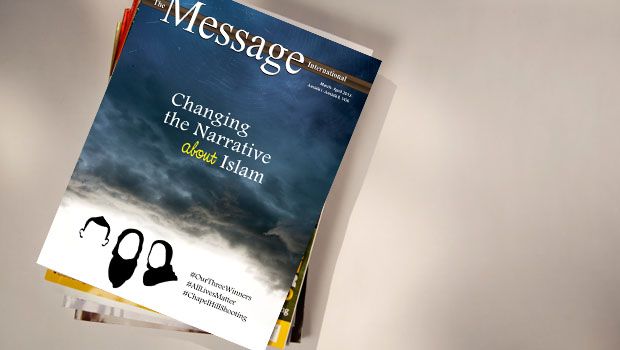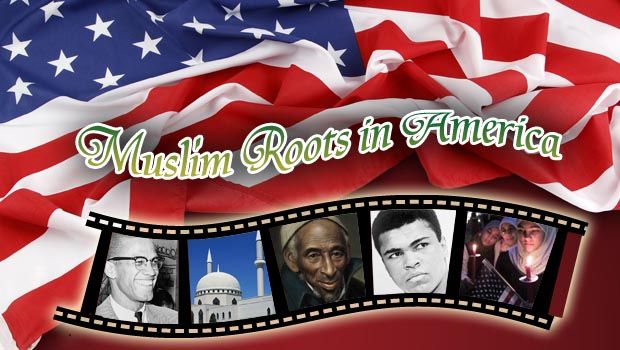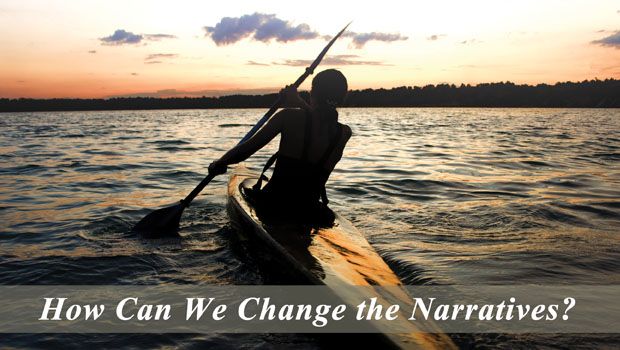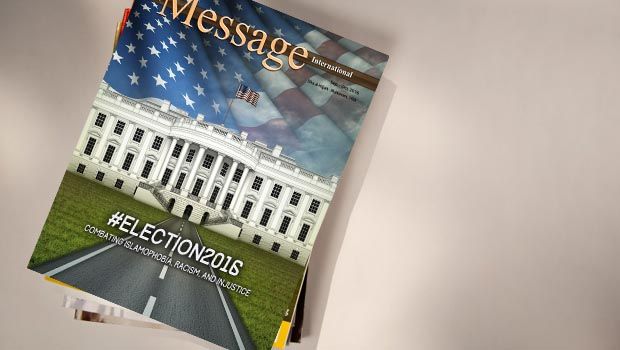For years we have been decrying Islamophobia, the irrational fear and hatred of Islam and Muslims. We say again and again that this is simply an extra-ordinary hate campaign that has spread ubiquitously throughout society and threatens all Americans because it breeds distrust and division. That is not just a self-deflecting perception. It is a very real phenomenon that has now spawned the recent execution-style killing of three innocent American-born Muslim students at the University of North Carolina at Chapel Hill.
What is at the base of this bigotry, so extreme that a man feels driven to mercilessly kill his Muslim neighbors, ostensibly over a parking spot? One observer rightly said, “This is not at all surprising given the systematic vilification and stereotyping of Islam and Muslims perpetrated by the powerful media outlets for years–all intended to paint Muslims as ‘the demon’ to be defeated or eliminated…”
One recent academic study found that since the 9/11 attacks the U.S. mainstream media has been dominated by a virulent anti-Islam discourse. Christopher Bail, an assistant professor of sociology at the University of North Carolina, conducted the study, “The Fringe Effect: Civil Society Organizations and the Evolution of Media Discourse about Islam since the September 11th Attacks,” which was published in the American Sociological Review. He writes that following 9/11 most media outlets engaged in “pro-Muslim discourses” but that “anti-Muslim fringe organizations dominated the mass media via displays of fear and anger.” He continues, “Institutional amplification of this emotional energy created a gravitational pull or ‘fringe effect’ that realigned inter-organizational networks and altered the contours of mainstream discourse itself.”
The crucial challenge is how to change the negative narrative about Islam in a broad-based way to reach the greatest number of Americans
The outcome today, sadly, is that many do not find it politically incorrect to engage in or listen to bigoted, hateful speech about Muslims. It is not surprising then that anytime a Muslim commits a crime of violence anywhere in the world, Muslims everywhere, including America, are blamed as a collective: guilt by association. The recent Charlie Abdo murders cued the usual media chorus of demands that Muslims denounce terrorism – as if they hadn’t, loudly, again and again, in the aftermath of 9/11.
Religious tolerance, nonetheless, is deeply embedded within our American heritage and national character. In fact, Muslims involved in interfaith, dawah, and personal efforts to provide accurate facts about Islam find that most Americans are fair-minded and easily grasp that they have been misled by propagated distortions about Islam and Muslims. In line with the American tradition, many then take a principled stand against the bigotry aimed at American Muslims. So the crucial task and challenge is how to change the negative narrative about Islam in a broad-based way so as to reach the greatest number of Americans. That alone can empty and void the tinderbox of hostility that exploded in Chapel Hill.
In order to stand up to the multimillion dollar Islamophobia industry, Muslim-American organizations, professionals, and activists need to be adequately represented within our national, state, and local policy-making process. In addition, we need to recognize the simple ironic truth that “the freedom of the press belongs to those who own it.” Investment in building credible media outlets is imperative, providing sources of information that are dedicated to speaking truthfully to the people generally, about all things pertaining to America and its place in the world, and in particular presenting accurate reportage and coverage of Muslims, their religion, and issues important to them as a community integral to the American way of life.
A few years back, while addressing the challenges of growing Islamophobia in America, one scholar suggested some “Dos and Don’ts” which are here pertinent and worth mentioning:
“First, we Muslims cannot wallow in victim status. This is not a time for self-pity, nor is it a time to be paralyzed by fear. Prejudice is ultimately a product of ignorance. So we must broaden our contacts in our neighborhood and participate in local get-togethers and meetings on civic issues. Second, we should write short letters that are to the point and e-mail or tweet them to our local newspaper when it publishes something non-factual about Islam. Third, listen to local radio and TV talk shows, and call in to present your positive comments. Appreciate their efforts to be balanced before correcting them. Fourth, develop personal contacts with the media and become a source person on issues related to Islam and Muslims. Often, they do not know who to contact when they need specific information, and so they just turn to a few ‘experts’ who always feed them negative and biased views.”
Last but not the least, we should always keep in mind that it is “better to light a candle than to curse the darkness.” We should engage ourselves in positive and proactive efforts, lighting millions of candles for truth, justice, and peace. To dispel the darkness, Islam advises us, through the Quran and our beloved Prophet (pbuh), to “repel evil with what is better.” May Allah (swt) help us all.
Ameen.





